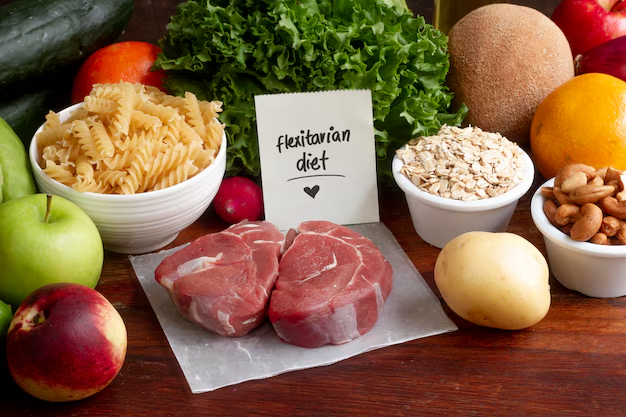
Good nutrition is essential at every stage of life, from childhood to old age. However, the specific nutritional needs of the body change as we age, and it’s important to adjust our diets accordingly. Whether you’re trying to feed a growing child, maintain a healthy lifestyle as an adult, or manage age-related health concerns as a senior, making informed food choices can have a profound impact on your health. In this blog, we’ll explore the best nutrition tips for kids, adults, and seniors to help optimize health at every stage of life.
Nutrition for Kids: Building Healthy Habits Early
The early years are critical for growth and development, and proper nutrition plays a pivotal role in supporting that. Children need the right balance of vitamins, minerals, protein, and healthy fats to fuel their active lives and ensure proper growth.
Key Nutrients for Kids:
- Protein: Protein is essential for growth, muscle development, and immune function. Include lean meats, poultry, fish, eggs, beans, and legumes in their meals.
- Calcium and Vitamin D: These are important for bone health, especially as children are growing rapidly. Dairy products like milk, cheese, and yogurt, as well as fortified plant-based milk, can provide these nutrients.
- Fiber: Fiber aids digestion and helps prevent constipation, which is common in children. Whole grains, fruits, vegetables, and legumes are great sources.
- Healthy Fats: Omega-3 fatty acids, found in foods like fish, walnuts, and flaxseeds, are crucial for brain development.
Tips for Kids:
- Encourage Balanced Meals: Offer a variety of fruits, vegetables, whole grains, and proteins at every meal.
- Snack Smart: Offer nutritious snacks like fruit, nuts, yogurt, or whole-grain crackers instead of sugary snacks or chips.
- Limit Sugary Drinks: Sugary drinks, including sodas and juices, can contribute to weight gain and dental issues. Encourage water, milk, or 100% fruit juice in moderation.
Nutrition for Adults: Maintaining Health and Preventing Disease
As adults, our nutritional needs change slightly compared to childhood, but maintaining a well-rounded, nutrient-rich diet is key to staying healthy, active, and preventing chronic diseases like heart disease, diabetes, and obesity.
Key Nutrients for Adults:
- Protein: Protein is important for muscle maintenance and repair. Include lean protein sources like chicken, fish, tofu, beans, and legumes.
- Fiber: Adequate fiber intake is crucial for digestive health and weight management. Whole grains, vegetables, fruits, and legumes are rich in fiber.
- Healthy Fats: Healthy fats, particularly unsaturated fats from sources like olive oil, avocados, and nuts, support heart health and keep you feeling full.
- Iron: Iron is essential for energy levels, particularly in women. Good sources include lean meats, spinach, lentils, and fortified cereals.
- Antioxidants: Fruits and vegetables rich in antioxidants, such as berries, leafy greens, and tomatoes, help protect the body from oxidative stress and chronic diseases.
Tips for Adults:
- Watch Portion Sizes: As metabolism slows with age, being mindful of portion sizes can help prevent weight gain.
- Eat a Rainbow: Aim to consume a variety of colorful fruits and vegetables to ensure you’re getting a broad spectrum of vitamins and minerals.
- Limit Processed Foods: Minimize your intake of processed foods, which are often high in sodium, unhealthy fats, and added sugars.
- Stay Hydrated: Drink plenty of water throughout the day to stay hydrated, as our sense of thirst diminishes with age.
Nutrition for Seniors: Supporting Health and Longevity
As we age, our bodies experience changes that may affect our nutritional needs. Seniors often need fewer calories but require more of certain nutrients like calcium, fiber, and vitamin B12. A healthy diet for seniors can help manage age-related conditions, support bone health, and maintain cognitive function.
Key Nutrients for Seniors:
- Calcium and Vitamin D: Bone density decreases with age, so getting enough calcium and vitamin D is critical to prevent osteoporosis. Include dairy products, fortified plant-based milk, leafy greens, and fatty fish like salmon.
- Fiber: A diet rich in fiber helps prevent constipation and supports digestive health, which can become more challenging with age. Whole grains, fruits, vegetables, and legumes are excellent sources.
- Vitamin B12: As absorption decreases with age, vitamin B12 is essential for nerve function and red blood cell production. Foods like fortified cereals, eggs, dairy, and lean meats are good sources.
- Protein: Maintaining muscle mass becomes more important as we age. Include lean protein sources like fish, poultry, eggs, beans, and low-fat dairy.
- Healthy Fats: Omega-3 fatty acids are crucial for heart and brain health. Seniors should aim to include fatty fish like salmon, walnuts, and flaxseeds in their diet.
Tips for Seniors:
- Focus on Nutrient-Dense Foods: As calorie needs decrease, it’s important to make every bite count. Opt for nutrient-dense foods that provide the maximum amount of vitamins and minerals.
- Stay Active: Regular physical activity, along with a balanced diet, helps seniors maintain strength, flexibility, and overall well-being.
- Avoid Excess Salt and Sugar: Processed foods often contain high levels of sodium and added sugars. Reducing salt and sugar intake can help prevent high blood pressure, heart disease, and diabetes.
- Hydrate Regularly: Older adults may have a diminished sense of thirst, so it’s essential to drink water regularly throughout the day to prevent dehydration.
Conclusion
Good nutrition is vital at every age, and making healthy food choices is key to maintaining health, preventing chronic diseases, and enjoying a high quality of life. By focusing on nutrient-rich foods tailored to the unique needs of children, adults, and seniors, you can provide the building blocks for better health at every stage of life. Whether you’re raising kids, maintaining your own health, or supporting aging parents, thoughtful food choices can pave the way for a healthier and more fulfilling life. Start today by incorporating these nutrition tips into your diet and watch as small changes lead to big health benefits!












